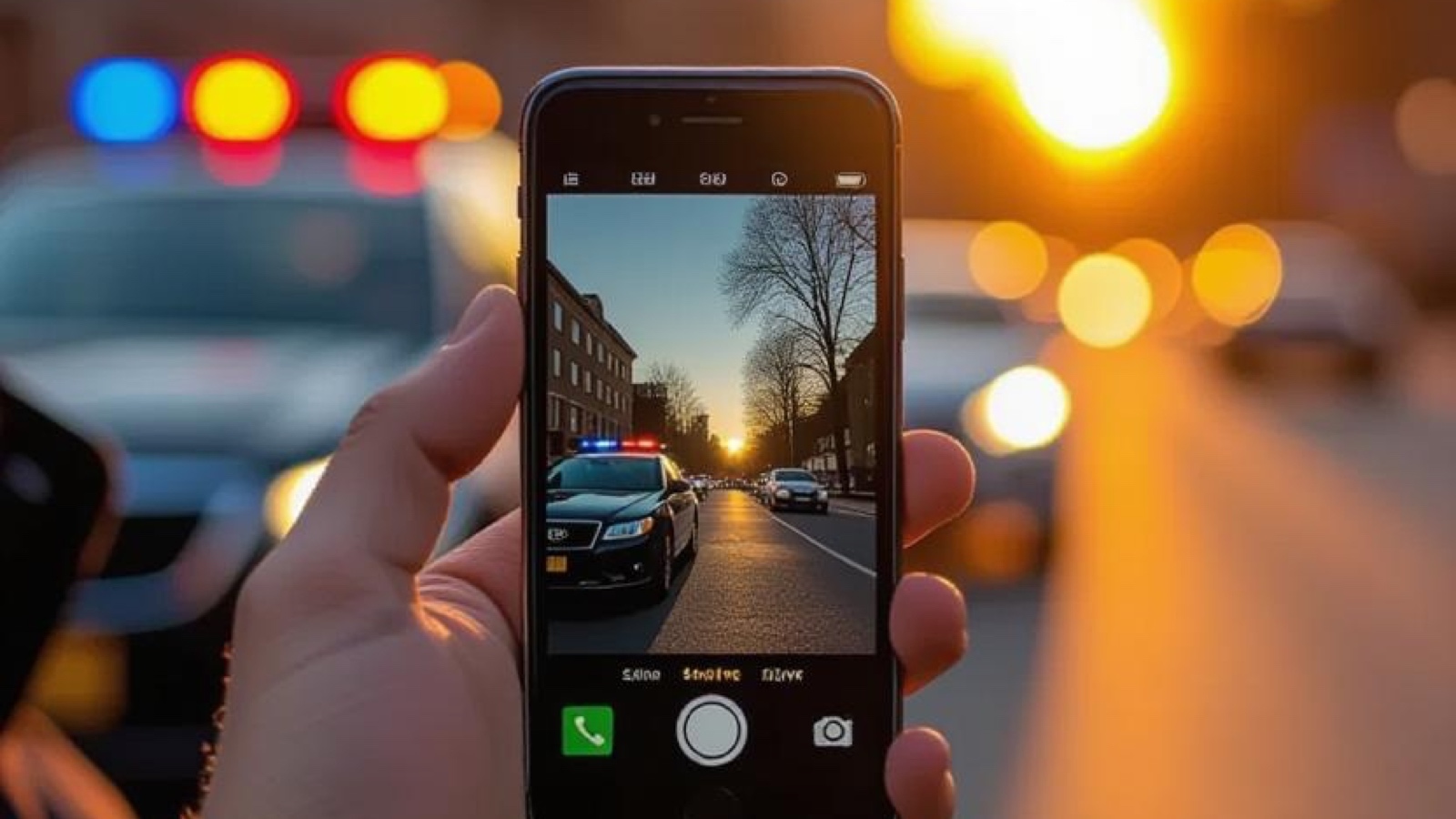Educational content only — not legal advice.

Recording on-duty officers in public is generally lawful if you don’t interfere. Keep a respectful distance, avoid blocking movement, and don’t step into active scenes. Your goal is a clear record, not a confrontation.
Know your rights (plain English)
- You may record from a reasonable distance without interfering.
- Hands visible, movements slow. If asked what you’re doing: “I’m recording, and I’ll stay back.”
- If the encounter becomes a detention or arrest, use the rights script and stop discussing facts.
Rights script: “I choose to remain silent. I want a lawyer. I don’t consent to any searches.”
Practical filming tips
- Hold the phone horizontally; lock focus/exposure; speak the date/time/location at the start.
- Frame wide enough to show context; avoid running commentary that escalates emotions.
- Back up rather than moving closer if the scene is tense or lighting is poor.
If told to move or stop recording
- Comply with repositioning and continue recording from the new spot.
- Keep it calm: “I’ll stay back and won’t interfere.”
- Don’t argue roadside law; save disputes for later with counsel.
If your phone is seized
- Do not resist physically. Ask for a property receipt.
- Note time, location, and unit/badge numbers if you can do so safely.
- Tell your lawyer as soon as possible and keep a copy of the original file if backed up.